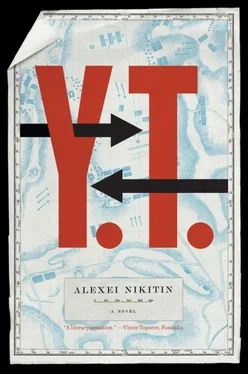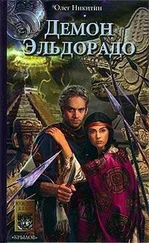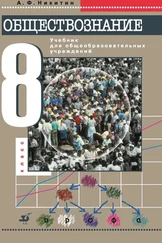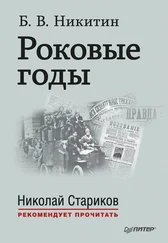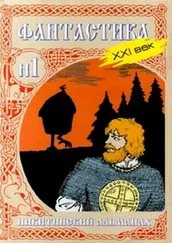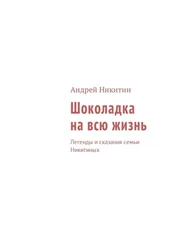At about the same time the next day I was driving through the dreary watercolor landscape of Kirovohrad Province. A dirty March sky swollen with heavy water blended into the muddy snow of the endless fields. Also traveling in my car were a one-legged Chechen, his wife and her sister. I was taking them to Crimea. The Chechen’s name was Vakha. He rode the whole way in the back seat, silent and with eyes half closed. He was obviously from the ranks of people accustomed to giving orders not receiving them, but things had not gone his way, and for the time being he was prepared to play along. Patiently he endured everything that was happening to him and around him, including this trip. His wife Larissa didn’t speak either. Her sister Vera was the only one who didn’t wish to keep silent, and she chattered enough for the three of them. Either she was recalling how the entire family had once travelled to Crimea along this very road or she was telling her sister something about their mutual acquaintances… I’m not too keen on garrulous women, but if it hadn’t been for Vera the journey would have been a lot harder.
Larissa and Vera were twins. I estimated that they were somewhere around twenty-six to twenty-eight years of age, but Larissa looked forty, and Vera—if you felt generous—could pass for twenty. They were very much alike. Like mother and daughter. They’d had an older sister, the one Nedremailo had touched on vaguely in our conversation. After an illness lasting a number of years she died when she was still a child. Her sisters could barely remember her.
This unexpected trip had come about as a direct result of my phone call to Nedremailo. I’d gone to see him in the evening, but we weren’t able to talk. The professor and his family were trying to solve a problem that wasn’t quite clear to me: how to get Larissa’s husband to Crimea, to the village of Vostochni not far from the city of Stary Krym. I had the time, I was ready to get out of Kiev for a while and you could do worse than Crimea for a holiday. It might have been freezing outside, but at least it was March. I decided I’d rather travel in company than alone, so the next morning I collected Nedremailo’s daughters and son-in-law and sped south.
I didn’t realize Larissa’s husband was a Chechen, and only when he came out of the building did I see what was troubling Nedremailo and his daughters. Vakha bore an astonishing resemblance to the Chechen guerrilla Shamil Basayev, whose unforgettable image had dazzled Russian journalists with love and awe during the first half of the 1990s. He was short in stature, lean and fit, his face hidden by a thick, curling, well-groomed beard and his head carefully shaved. Across his shoulder he’d thrown an old much-laundered officer’s pea coat. Vakha leaned on a crutch with one arm, his other resting on Larissa’s shoulder. Later Vera told me their story and much more. But that morning, at the entrance to their nine-storey apartment building on South Borschagovka, the last thing on my mind as I helped shove suitcases and bags into the boot was that she and I might have a mutual ‘later.’
We reached Vostochni without misadventure—no one stopped us and checked our documents. I would have cast those seven hours behind the wheel from my memory altogether had we not made a stop of no more than fifteen minutes just before Melitopol. We stopped to eat. Vakha refused to get out and ate in the car, and Larissa stayed with her husband. Vera and I took a table in a small roadside café. Only now was I getting a proper look at her. I’d never seen Vera before, but something endlessly familiar played around the features of her face and echoed faintly in her voice and her very manner of speaking.
‘You must be tired of my chatter,’ Vera said. ‘I usually don’t talk so much, but I’m making an effort today for Larissa. Perhaps it’s not making any difference, but I thought the journey would be easier for her if I reminisced about our childhood. We really did travel a lot to Crimea. But it doesn’t seem to have done any good. She came home a changed person.’
‘Came home from where?’ I asked politely. I wasn’t that interested in Larissa’s life story. I was interested in Vera.
‘From Chechnya. You mean you didn’t know?’
‘Ah…’ I started in embarrassment. ‘No, I didn’t. What was she doing there?’
‘It’s a long story. We don’t have much time now, but I’ll tell you later some time.’
She was right. We didn’t have much time. Hurriedly we gulped down our chicken soup and tucked into the overdone chicken legs and rice—for some reason the café only served chicken.
Then it was time to go back to the car.
Suddenly it dawned on me. ‘Vera,’ I said. ‘You look astonishingly like an old classmate of mine.’
‘Who?’
‘You wouldn’t know her. Natasha Belokrinitskaya.’
‘I know Nastashka very well. All our relatives used to tell our parents we looked like her. “Your girls were poured from the same mold as Natasha.” She’s seven years older so it was a natural comparison.’
‘You know her?’ I was amazed.
‘Our mothers are first cousins, so we’re second cousins.’
‘Has she ever been to your home?’
‘Not that often, but she’s been there.’ Vera got up. ‘Shall we? It’s time we were off.
We went outside. The sea could already be felt close by. A gentle mild spring breeze ruffled the air. It smelled of the sea and melting snow and grasses. Where do grasses come from in March? I don’t know. I was standing at the door to the café watching Vera get into the car. Something had changed, decisively and irretrievably. Within and without. Only the sky remained the same—heavy, wet, grey and endlessly familiar. I had spent years beneath this sky. No, more than that. I had spent a lifetime beneath it. Once upon a time, before I’d begun trading in American fizzy drinks, Istemi’s horsemen had swept beneath this sky, horsemen who were as light as death and as fast as time.
We reached Vostochni at dusk. Vakha was expected. I don’t know who they were, friends or relatives, but they met him noisily and joyfully. I was allowed to stay the night, which was all that I wanted. I was very tired. Larissa didn’t talk that evening, the same as during the day, the same as always. Vera, finding herself surrounded by people she didn’t know and not knowing their language, suddenly lost her bearings. In the morning I asked her what her plans were.
‘I was going to stay on for a week and help Larissa settle in, but now I’m not sure what to do with myself. It’s not at all what I’d expected.’
‘Would you like to go to the sea?’
‘I’d love to,’ she said happily. ‘When are you going?’
‘Right now.’
No one tried to stop us. I had a good look at Vostochni as we drove away; it was a typical Tatar village. Many settlements like this had sprung up in Crimea in recent years. The sense of poverty and despair that stifled them in the early 1990s was gone. People obviously had some money now and confidence in themselves. Even the Chechens were catching up. How would it all end?
‘What does Larissa think about this move?’ I asked as the road followed a bend and Vostochni disappeared behind a rare line of trees.
‘Nothing. I think it’s all the same to her. I said I’d tell you how Larissa married Vakha. We need something to do on the road, and there isn’t a radio.’
‘Indeed,’ I agreed.
Vera began telling me her sister’s story when we were getting on to the motorway between Stary Krym and Theodosia, and by the time she finished we had passed Alushta. We didn’t get out at Theodosia, but we did go for a walk along the bar-infested seaside at Koktebel, and we had lunch in Sudak. Then Vera called home and told her father she had left Vostochni but was going to spend a couple of days in Crimea, and I checked my e-mail. I was waiting to hear from Kanyuka, but he was maintaining his silence. Instead of a letter from Kanyuka I found a demand from Kurochkin either to meet him immediately or to contact him straight away. I wasn’t going to do either. What did I care about Kurochkin now that I was travelling through springtime Crimea with Vera alongside me—and her resemblance to Natasha Belokrinitskaya had already become almost inconsequential. Vera had been telling me about Larissa for several hours, but, strangely, this grave account didn’t spoil our journey to Yalta or the following days in Crimea. As they say, it happened a long time ago and to somebody else, so what can you do about it now? There was Kurochkin, tearing about the cold, sleety streets of Kiev hunting for me, while I was… Well, never mind, he could wait a few more days. I decided to give him a ring when I got back home. Even though my conscience was still bothering me about letting a friend down, the situation would be clearer then.
Читать дальше
